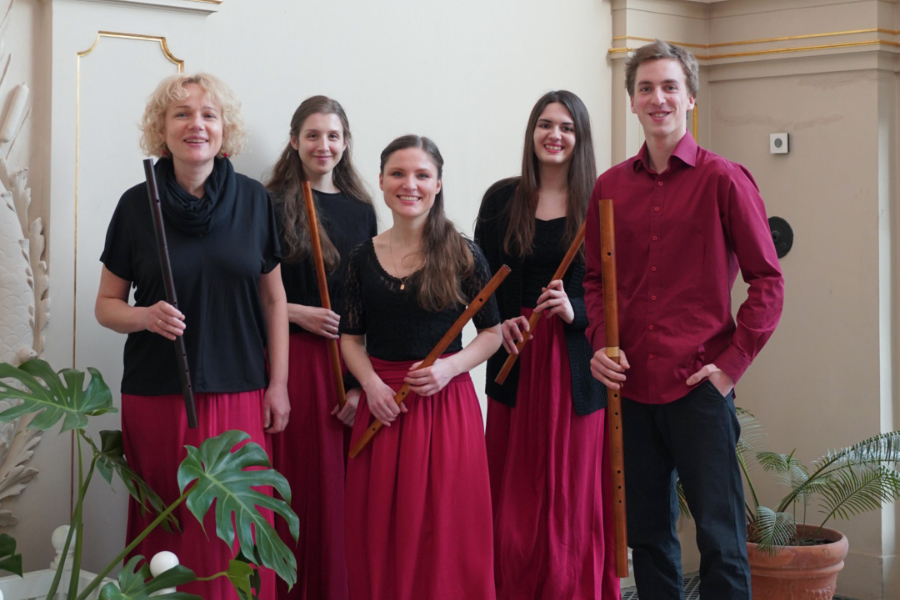Transverse flutes enjoyed great popularity throughout the Renaissance Europe, as evidenced by the inventories of instruments from the courts of European rulers aspiring to the role of patrons of the arts, preserved until today. About fifty flutes were owned by the Accademia Filarmonica di Verona, whose collection has survived to this day – the copies of the instruments stored there are played by the ensemble La Viva Fiamma, which will perform during the concert. The Transalpine musical journey will take us from Ferrara and Venice through Nuremberg, Frankfurt and Paris to London.
In the first part of the concert, the Cohaere Ensemble will perform a composition by Carl Tessarini, born around 1690 in Rimini. It is known that even at an advanced age, this artist remained creative and wrote new works, and the history of his life proves his extraordinary professional activity, which earned him a big fortune. He wrote only instrumental music, in which the violin dominated. Then we will listen to the works of Michel Corrette, a musician with broad interests, a talented and prolific composer, publisher, organist, teacher and author of many musical manuals.
After the break, our musical journey will be accompanied by pieces that could have been performed on flutes or on other instruments in the 16th and early 17th centuries. Among them we find both four-part French chansons and five-part Italian madrigals. Strictly instrumental music is represented by dances as well as polyphonic instrumental canzonas, including those composed by Girolamo Frescobaldi. In this way, we reach a boundary i.e. the music of the early Baroque. The pieces will be presented by the La Viva Fiamma transverse flute consort, established in 2019 on the initiative of Magdalena Pilch. It is currently the only ensemble of this type in Poland, and it consists of undergraduates and graduates of the classes of historical transverse flutes and recorders of the Grażyna and Kiejstut Bacewicz Academy of Music in Łódź.

